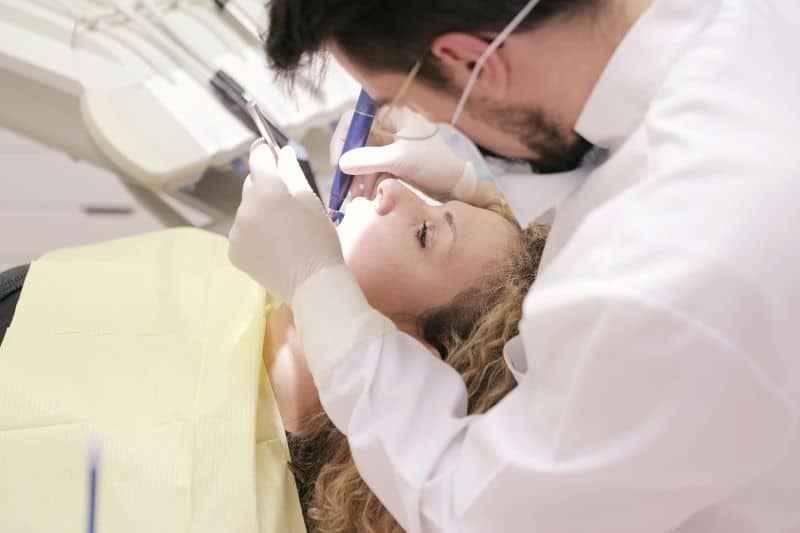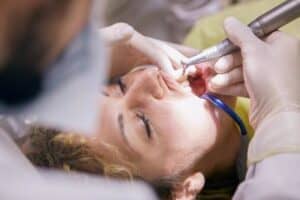
28 Jan The Link Between Hydration and Oral Health
The Link Between Hydration and Oral Health
Hydration is often associated with physical well-being, but its impact on oral health is equally significant. Staying hydrated plays a crucial role in maintaining a healthy smile, preventing cavities, and ensuring optimal gum health. Understanding the connection between hydration and oral health can empower individuals to make informed choices for their dental hygiene.
Understanding Hydration’s Role in Oral Health
Water is the elixir of life, and its benefits extend to oral hygiene. Proper hydration ensures that your mouth stays moist, aiding in the prevention of various dental issues. The mouth relies heavily on saliva to perform its essential functions, such as breaking down food, neutralizing acids, and washing away bacteria.

The Importance of Saliva in Oral Hygiene
Saliva is more than just a natural lubricant. It plays a pivotal role in keeping your teeth and gums healthy. Here’s how:
- Neutralizes Acids: Saliva helps balance the pH levels in your mouth, reducing the risk of enamel erosion.
- Aids Digestion: It begins the digestion process by breaking down carbohydrates.
- Prevents Dryness: Saliva keeps your mouth moist, which is crucial for speaking, chewing, and swallowing comfortably.
- Protects Against Bacteria: Saliva contains antimicrobial compounds that help fight harmful bacteria.
Signs of Dehydration in Your Mouth
Recognizing the signs of dehydration can help you take prompt action. Common symptoms include:
- Persistent dry mouth
- Cracked lips
- Thick saliva
- Bad breath
- Increased tooth sensitivity
- Difficulty chewing or swallowing
How Dehydration Affects Oral Health
Failing to stay hydrated can lead to a cascade of oral health issues. Here are some of the most common consequences:
Increased Risk of Cavities and Tooth Decay
A dry mouth is a breeding ground for bacteria. Without adequate saliva, harmful microorganisms can thrive, leading to cavities and tooth decay. Saliva not only washes away food particles but also contains minerals that help repair early stages of tooth damage.
Dry Mouth and Its Consequences
Medically known as xerostomia, dry mouth can cause discomfort and increase the likelihood of gum disease and oral infections. It’s a condition often exacerbated by dehydration, certain medications, and lifestyle choices. Chronic dry mouth can also affect your ability to taste and enjoy food.
Gum Health and Hydration
Hydration also impacts your gums. Dehydrated gums are more prone to inflammation, which can lead to conditions like gingivitis and periodontitis if left unchecked. Drinking water helps flush out toxins and food debris, reducing the chances of gum infections.

Tips for Staying Hydrated
Maintaining proper hydration doesn’t have to be complicated. Here are practical tips to ensure you’re meeting your body’s water needs:
Daily Water Intake Recommendations
Experts recommend drinking at least 8 glasses (64 ounces) of water daily. However, individual needs may vary based on factors like age, activity level, and climate. For example, athletes or individuals living in hot climates may require more water to stay hydrated.
Foods That Promote Hydration
Incorporating water-rich foods into your diet can complement your hydration efforts. Some excellent choices include:
- Cucumbers: Composed of 95% water, cucumbers are highly hydrating and contain essential vitamins.
- Watermelon: Packed with water and electrolytes, it’s a refreshing summer snack.
- Oranges: Citrus fruits are hydrating and rich in vitamin C, which benefits oral health.
- Celery: This crunchy vegetable is not only hydrating but also stimulates saliva production.
- Strawberries: These berries are 91% water and contain antioxidants that support overall health.
Monitoring Your Hydration Levels
Simple methods to track hydration include checking the color of your urine (pale yellow indicates proper hydration) and monitoring your energy levels. Additionally, setting reminders to drink water throughout the day can help establish a consistent routine.
Common Misconceptions About Hydration and Oral Health
Are All Beverages Equally Hydrating?
Not all liquids provide the same benefits. Sugary drinks, for instance, can contribute to tooth decay, even if they quench your thirst temporarily. Opt for plain water or herbal teas instead of sodas or energy drinks.
The Role of Electrolytes
Electrolytes are essential for hydration, especially during intense physical activities. However, electrolyte-rich beverages often contain sugar, which may harm your teeth. Consider sugar-free electrolyte drinks or coconut water as alternatives.
Caffeine and Alcohol: Friend or Foe?
Both caffeine and alcohol are diuretics, which means they can dehydrate your body. If consumed, balance them with water to mitigate their effects. For example, drink a glass of water for every cup of coffee or alcoholic beverage.

FAQs
How does hydration impact bad breath?
Hydration helps maintain saliva flow, which washes away food particles and bacteria that cause bad breath. A dry mouth can exacerbate halitosis, making hydration essential for fresh breath. When your mouth is dry, odor-causing bacteria can flourish. Drinking water regularly not only keeps your mouth moist but also helps flush out debris that might otherwise lead to foul-smelling breath. Chewing sugar-free gum or eating water-rich fruits like apples can also stimulate saliva production and combat bad breath.
Can drinking too much water harm oral health?
While rare, excessive water intake can dilute saliva’s natural enzymes, slightly affecting oral health. However, this is uncommon and usually only occurs in extreme cases. Drinking large amounts of water rapidly can also lead to overhydration, which disrupts the body’s electrolyte balance. This can theoretically reduce the effectiveness of saliva in maintaining a healthy oral environment, but such instances are exceedingly rare in everyday life.
What is the best time to hydrate for oral health?
Consistent hydration throughout the day is ideal, but drinking water after meals can help rinse away food particles. Additionally, drinking a glass of water before bed can prevent overnight dryness. For an extra boost, you might consider starting your day with a glass of water to jumpstart saliva production. Carry a reusable water bottle throughout the day as a reminder to stay hydrated.
Are sports drinks good for oral hydration?
Most sports drinks contain sugar, which can lead to cavities. Opt for water or sugar-free alternatives when possible. If you choose a sports drink, rinse your mouth with water afterward to minimize sugar exposure. Some sports drinks also contain acids that can erode enamel over time, so they should be consumed sparingly. For athletes, plain water or unsweetened electrolyte solutions are better options to maintain hydration and oral health.
How can older adults ensure proper hydration?
Older adults should keep water accessible, consume water-rich foods, and set reminders to drink regularly. Using flavored water or herbal teas can make hydration more appealing. It’s also helpful to establish a routine, such as drinking a glass of water with each meal and snack. For those with mobility issues, having lightweight, easy-to-grip water bottles nearby can encourage more frequent sips.
Does hydration influence oral diseases like gingivitis?
Yes, hydration supports gum health by preventing dryness and reducing the risk of inflammation. A hydrated mouth is better equipped to fight off bacteria that cause gingivitis. Saliva acts as a natural cleanser, helping to remove food particles and bacterial buildup around the gums. Drinking plenty of water can also help soothe irritated tissues, promoting overall gum health.
How does hydration impact your enamel?
Hydration supports enamel health by encouraging consistent saliva production. Saliva provides essential minerals that strengthen enamel and prevents acid buildup, which can erode your teeth over time. Staying hydrated is a simple yet effective way to protect your enamel.
Conclusion
Hydration and oral health are deeply interconnected. By staying hydrated, you can protect your teeth, gums, and overall oral hygiene. Simple steps like drinking more water, choosing hydrating foods, and understanding hydration’s role in oral health can make a lasting difference. Remember, a hydrated mouth is a healthy mouth—so drink up and smile confidently!


Sorry, the comment form is closed at this time.